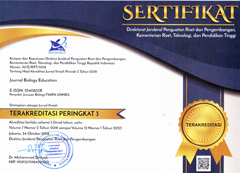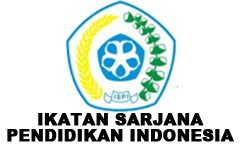Development of E-Module Based on Contextual Teaching and Learning on Human Mobility Material to Improve Science Literacy Abilities of Class XI Students
Keywords:
Contextual Teaching and Learning, E-Module, Human Mobility, Scientific Literacy AbilityAbstract
The latest PISA score results in 2022 state that the scientific literacy abilities of students in Indonesia are in the low category. Based on the results of a questionnaire analyzing the needs for teaching materials at SMA Teuku Umar Semarang, the teaching materials implemented had not yet trained scientific literacy in the aspects of content, process and context. The aim of this research is to develop an electronic module (E-module) based on Contextual Teaching and Learning (CTL) on human mobility material that is feasible, practical and effective to improve students' scientific literacy skills. The research design used is Research and Development using the 4D (Four-D) model stages, including: Define, Design, Development, and Dissemination. Data collection tools include product feasibility questionnaires, product practicality questionnaires, and multiple choice test instruments. Based on the research results, the e-module was declared very feasible with a percentage score of 96.2% by material experts and 97.9% by media experts. In the practicality test, it was stated that it was very practical with the percentage of scores obtained based on teacher responses, namely 87% and the percentage of scores from students of 89%. In the effectiveness test, it was declared effective in improving scientific literacy skills with a percentage of 94.83% of students who obtained N-Gain scores in the medium and high categories.





